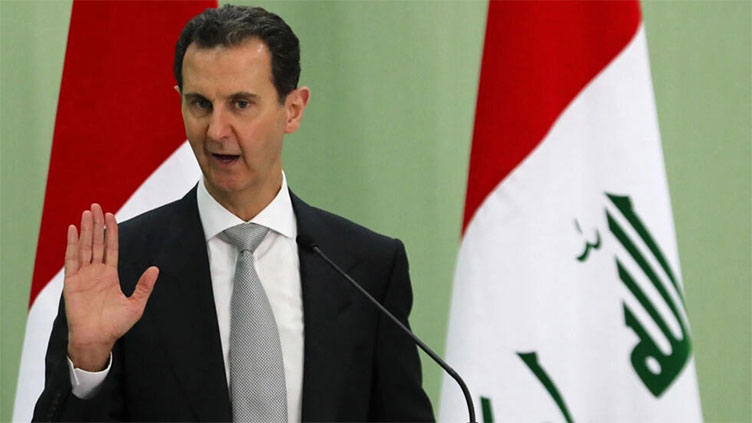French court upholds arrest warrant for Syria's Assad

World
Assad's government has denied using chemical weapons against its opponents.
PARIS (Reuters) - The Paris appeals court on Wednesday ruled that an international arrest warrant for Syrian President Bashar al-Assad issued by France for alleged complicity in war crimes during Syria’s civil war is valid and remains in place, lawyers said.
The warrant issued by French judges in November 2023 refers to charges of complicity in crimes against humanity and complicity in war crimes, following a French investigation into chemical attacks in Douma and the district of Eastern Ghouta in August 2013 which killed more than 1,000 people.
In May, French anti-terrorism prosecutors asked the Paris appeals court to rule on lifting the arrest warrant for Assad, saying he has absolute immunity as a serving head of state.
Assad's government has denied using chemical weapons against its opponents in the civil war, which broke out in March 2011.
Arrest warrants for sitting heads of state are rare because they generally have immunity from prosecution.
However, international law has exceptions to that immunity when a head of state is accused of war crimes and crimes against humanity or genocide. France is among the countries that allows the filing of crimes against humanity cases in its courts.
'HISTORIC DECISION'
Victims of the attack welcomed France’s decision to issue arrest warrants as a reminder of the horrors of Syria’s civil war.
"This is a historic decision. It's the first time a national court has recognised that a sitting head of state does not have total personal immunity" for their actions, said plaintiffs' lawyers Clemence Bectarte, Jeanne Sulzer and Clemence Witt.
The decision was "great news" and "a new victory for the victims", International Human Rights League (FIDH) lawyer Mazen Darwish posted on X.
"There is no immunity in this type of crime," he added.
The anti-terrorist prosecutors could yet appeal the judgement to France's highest court, the Court of Cassation.
INVESTIGATION BASED ON PHOTOS, VIDEOS AND MAPS
Alongside Assad, the warrants target his brother Maher – then head of the Syrian army's fourth division – and two generals, Ghassan Abbas and Bassam al-Hassan.
The anti-terror prosecutors contested only the warrant for Bashar al-Assad's arrest.
The four individuals named in the arrest warrants can be arrested and brought to France for questioning while the investigation into the 2013 attacks in Eastern Ghouta and Douma continues, lawyers said. While Assad is unlikely to face trial in France, international warrants for a serving world leader are very rare and send a strong message about Assad’s leadership at a time when some countries have welcomed him back into the diplomatic fold.
Around 450 people were hurt in the first attack, while US intelligence says over 1,000 were killed with sarin nerve gas in East Ghouta, a suburb of Syrian capital Damascus.
The investigation by France's OCLCH crimes against humanity unit is based on photos, videos and maps, many supplied by plaintiffs, as well as testimony from survivors and former military personnel.
Soon after the attacks, Syria agreed to join the Organisation for the Prohibition of Chemical Weapons (OPCW), and has denied subsequent allegations it continued to use the arms.
It had its OPCW voting rights suspended in 2021 following poison gas attacks on civilians in 2017.
Syria says it eliminated its chemical arsenal under the 2013 agreement. However, watchdog groups have continued to allege chemical attacks by Syrian government forces since then.
Syria is not a member of the International Criminal Court, meaning the court does not have jurisdiction there. However, human rights lawyers in the past have urged prosecutors to open an investigation into crimes during the country’s civil war, arguing that the court could exercise jurisdiction over Syrian civilians forced into Jordan, which is a member of the court.
The Syrian civil war broke out in 2011 with the brutal repression of anti-government protests, escalating into a deadly armed conflict involving foreign powers and global jihadist groups.
The war has killed more than half a million people and displaced half of the country's pre-war population.


